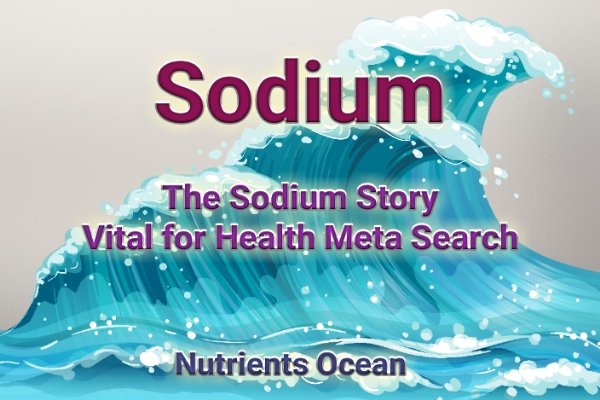Sodium
Sodium, often portrayed negatively due to its association with processed foods, plays a pivotal role in maintaining our overall health. In this comprehensive guide, we’ll delve into the importance of sodium for human health, exploring its critical functions and the repercussions of imbalance. Let’s uncover why sodium deserves recognition as a vital nutrient.
Regulating Blood Pressure and Fluid Balance
Sodium acts as a key player in regulating blood pressure and fluid balance within the body. Through its partnership with potassium, sodium helps maintain proper hydration levels and supports efficient fluid distribution. This delicate balance is crucial for cardiovascular health, ensuring adequate blood flow and optimal organ function.
Consequences of Imbalance
Both excessive sodium intake and insufficient consumption can have detrimental effects on overall health. Excessive sodium intake is linked to hypertension, stroke, and heart disease, highlighting the importance of moderation. Conversely, inadequate sodium levels can lead to dehydration, muscle cramps, and impaired nerve function, underscoring the need for a balanced approach.
Nerve Function and Muscle Contraction
Sodium plays a vital role in nerve function and muscle contraction, facilitating essential everyday activities. Nerve impulses rely on sodium channels to transmit signals efficiently, allowing for seamless communication throughout the body. Similarly, sodium’s involvement in muscle contraction ensures smooth movement and optimal performance during physical exertion.
Maintaining Proper pH Levels
Beyond its role in fluid balance, sodium contributes to maintaining proper pH levels in the body. By buffering acids and bases, sodium helps regulate acidity and alkalinity, supporting various physiological processes. This balance is essential for enzymatic activity, nutrient absorption, and overall metabolic function.
Sodium Intake and Heart Health
The relationship between sodium intake and heart health is a critical consideration for overall well-being. Excessive sodium consumption can elevate blood pressure, increasing the risk of cardiovascular events. To promote heart health, individuals should prioritise a balanced sodium intake by incorporating whole foods and minimising processed options.
Dietary Strategies for Balanced Sodium Intake
Embrace Whole Foods:
Fresh fruits, vegetables, lean proteins, and whole grains naturally contain sodium in balanced amounts.
Read Labels Mindfully:
Be vigilant of sodium content in packaged foods and opt for low-sodium or sodium-free alternatives when possible.
Flavour Creatively:
Experiment with herbs, spices, and citrus to enhance flavour without relying solely on salt.
Hydrate Adequately:
Proper hydration supports optimal sodium balance and helps mitigate the effects of excessive intake.
Signs and Symptoms of Sodium Deficiency
- Muscle cramps and weakness
- Headache
- Nausea and vomiting
- Fatigue and lethargy
- Confusion and irritability
Determining Sodium Deficiency
Diagnosing sodium deficiency typically involves blood tests to assess electrolyte levels. Symptoms, medical history, and dietary habits are also considered during evaluation.
Conclusion
Sodium, often overshadowed by its reputation, emerges as a vital nutrient essential for human health. From regulating blood pressure to supporting nerve function, its multifaceted role underscores the importance of balanced intake. By understanding sodium’s significance and adopting mindful dietary practices, individuals can optimize their well-being and pave the way for a healthier future.
#SodiumHealth #Nutrition #HealthyLiving #HeartHealth #BalancedDiet #Wellness #Electrolytes #Hydration #BloodPressure #MuscleFunction




